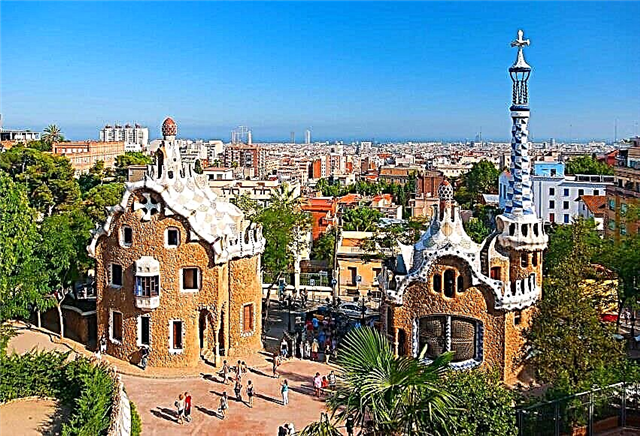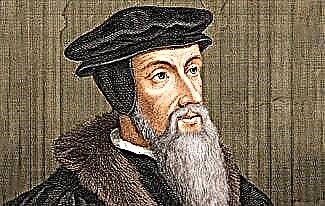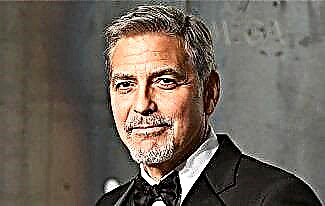Mikhail Zoshchenko (1894 - 1958) was one of the great Russian writers of the 20th century. A man who went through the First World War and the Civil War and was seriously wounded, managed not to get embittered by the sudden new era. Moreover, the officer of the tsarist army accepted the changes that took place in the country after the Great October Socialist Revolution and supported them.

Zoshchenko rightly believed that new people were needed to build a new state. In his works, he castigated the features inherited by Soviet Russia from Tsarist Russia. The writer heatedly argued with his colleagues who believed that it was necessary to raise the material basis of socialism, and changes in the souls of people would come by themselves. You cannot change the “boxes” for your soul, Zoshchenko argued in such disputes with colleagues.
Zoshchenko entered literature and as the creator of a special, unique language of presentation. Writers before him could introduce various dialects, jargons, argos, etc. into the narrative, but only Zoshchenko achieved such mastery in the presentation of colloquial speech that his characters sometimes described themselves with one colloquial phrase.
The fate of the writer turned out to be sad. Unjustly defamed by the party authorities, undermining his health, he was forced to grab any earnings and accept any help, instead of giving readers new masterpieces of his wonderful humor ...
1. Judging by Zoshchenko's notebooks, writing from childhood, at 7 - 8 years old. At first he was attracted to poetry, and in 1907 he wrote his first story "Coat". Zoshchenko began to be published after the revolution, starting in 1921. The manuscripts contain several stories written in 1914-1915.

2. From the same notebooks you can learn that Mikhail Zoshchenko was sentenced to death, arrested 6 times, beaten 3 times and twice he tried to commit suicide.
3. As a child, Zoshchenko experienced a severe psychological shock - after the death of his father, he and his mother went to seek a pension, but ran into a cruel reprimand from the official. Misha was so worried that he had mental problems for the rest of his life. During exacerbations of the disease, he simply could not swallow food, became unsociable and angry. He was simply obsessed with the idea of self-reliance, efforts of will, healing. If in his youth few people paid attention to this obsession, then by old age she made communication with Zoshchenko almost unbearable. The story "Before Sunrise", which became a serious reason for criticism of the writer, is filled with pseudo-scientific discourses on self-healing with references to authorities in psychology and physiology. In the last years of his life, Zoshchenko told everyone how he healed his mental illness on his own, and shortly before his death, being invited to dinner, boasted that he could take small amounts of food.
4. For some time Zoshchenko worked as an instructor in rabbit breeding and chicken breeding at the Mankovo state farm near Smolensk. However, it was the winter of 1918/1919, for the sake of rations, people got jobs and not for such positions.
5. In 1919, Mikhail entered the Literature Studio, where his mentor was Korney Chukovsky. According to the program, the lessons began with critical reviews. In a short outline, Zoshchenko made short additions to the names of writers and titles of works. V. Mayakovsky is called “the poet of timelessness”, A. Blok - “tragic knight”, and works of Z. Gippius - “poetry of timelessness”. He called Lilya Brik and Chukovsky “Literary pharmacists”.

"Literary pharmacist" Korney Chukovsky
6. At the Literature Studio, Zoshchenko studied with Vladimir Pozner Sr., the father of a famous television journalist. The elder Pozner was not even 15 years old at that time, but according to the recollections of the “students” (as Chukovsky called them), he was the soul of the company and a very capable writer.
7. The morals in the Studio were very democratic. When Chukovsky asked his wards to write essays on Nadson's poetry, Zoshchenko brought him a parody of the teacher's critical articles. Chukovsky considered the task completed, although a little later Zoshchenko passed the essay.
8. Zoshchenko volunteered for the First World War. After graduating from the school of warrant officers, at the front, he almost immediately received a company under command, and then a battalion. He was awarded four times. During the fighting, Zoshchenko was gassed. This poisoning affected the work of the heart.
9. After the well-known Order No. 1 of the Provisional Government, all positions in the army became elective. The soldiers elected Staff Captain Zoshchenko ... a regimental doctor - they hoped that the kind staff captain would issue them more certificates of sick leave. However, the soldiers did not miscalculate.

10. The humorous stories read by Zoshchenko in the House of Arts, where the Studio moved, were a huge success. The very next day, the stories were sorted into quotes, and all over the House of Arts they heard only about “disturbing the riots”, “changing over”, “nice pants” and the universal phrase “NN - wow, but a bastard!”
11. During the typing and printing of Zoshchenko's first book, "The Tales of Nazar Ilyich of Mr. Sinebryukhov," the typographic workers laughed so hard that part of the edition of the book was packed into the covers of K. Derzhavin's book "Treatises on the Tragic." 
12. Among writers in the 1920s it was fashionable to unite in circles, societies, etc. Mikhail Zoshchenko was a member of the Serapion Brothers circle together with Konstantin Fedin, Vsevolod Ivanov and other future famous writers.
13. As soon as the economic situation in the USSR began to improve and book publishing resumed, Zoshchenko became one of the most popular writers. Representatives of publishing houses chased him, printed books sold out instantly. In 1929, his first collected works were published.

14. Zoshchenko did not like it when fans recognized him on the street and pestered him with questions. Usually he excused himself by the fact that he really looked like the writer Zoshchenko, but his last name was different. Zoshchenko's popularity was enjoyed by the “children of Lieutenant Schmidt” - people posing as him. It was possible to get rid of the police quite easily, but once Zoshchenko began to receive letters from a provincial actress, with whom, allegedly, he had an affair during a cruise on the Volga. Several letters, in which the writer convinced the singer of deception, did not change the situation. I had to send the temperamental lady a photo.
15. Morals of the era: other tenants were moved into Zoshchenko's apartment - surplus square meters were found at the writer, who enjoyed all-Union popularity. ZhAKT (the then analogue of the ZhEK) was named after A. Gorky, and the great writer, who then lived on the island of Capri, really liked the works of Zoshchenko. He wrote a letter to the "Petrel of the Revolution". Gorky wrote a letter to ZhAKT, in which he thanked for giving the organization his name and asked not to oppress the famous writer living in the house. The relocated tenants went home on the day ZhAKT received a letter from Gorky.
16. The wife of M. Zoshchenko Vera was the daughter of a tsarist officer, and in 1924 she was “purged” from the university, although she was married when she entered the university to the staff captain of the tsarist army. A slender, talkative, agile blonde called her husband nothing more than "Mikhail".
17. In 1929 the Leningrad “Evening Krasnaya Gazeta” conducted a survey, wishing to find out who the most beloved and famous person in the city was. Zoshchenko won.
18. With the advent of literary fame and royalties, the Zoshchenko family moved into a large apartment and furnished it according to their income. The writer Viktor Shklovsky, having come to visit Zoshchenko, saw antique furniture, paintings, porcelain figurines and ficus, exclaimed: "Palm!" and added that exactly the same situation exists in the houses of the petty bourgeoisie, mercilessly scourged by Zoshchenko. The writer and his wife were very embarrassed.
19. About the popularity of Zoshchenko, the lines of Mayakovsky speak: "And it is drawn to her eyes / What kind of Zoshchenko is she getting married."
20. In everyday life, Zoshchenko looked boring and even sad. He never made jokes and even spoke seriously about funny things. The poet Mikhail Koltsov loved to arrange gatherings at home with humorist writers, but even at them it was difficult to get even a word out of Zoshchenko. After one of these meetings, in a special album that Koltsov kept so that jokers would write down their especially successful pearls, there is an inscription made by Zoshchenko's hand: “I was. Was silent for 4 hours. Gone".
21. Mikhail Zoshchenko performed, like modern humorists, with concerts. In manner he also reminded of Semyon Altov - he read stories absolutely without intonation, seriously and dispassionately.
22. It was Mikhail Zoshchenko who translated from the Finnish Maya Lassila's novel "Behind the Matches", which was used to make an excellent film in the USSR.

23. During the Great Patriotic War, Mikhail Zoshchenko tried to volunteer for the front, but was rejected for health reasons. By order, he was evacuated from blockaded Leningrad to Alma-Ata. Already in 1943 he returned to Moscow, worked for the Krokodil magazine and wrote theatrical plays.
24. The persecution unleashed against M. Zoshchenko and A. Akhmatova in 1946 after the August Decree on the magazines Zvezda and Leningrad does no credit to the Soviet authorities. It’s not even a matter of indiscriminate criticism - the writers themselves allowed themselves and not so. Zoshchenko was accused of hiding in the rear during the war and writing lampoons on Soviet reality, although it was well known that he was taken out of Leningrad by order, and the story "The Adventures of a Monkey", in which he allegedly denigrated Soviet reality, was written for children. To the apparatchiks in the fight against the Leningrad Party organization, every bast turned out to be in line, and Akhmatova and Zoshchenko became like grains of sand caught between the gears of a huge mechanism. For Mikhail Zoshchenko, persecution and actual excommunication from literature were like a shot in the temple. After the Decree, he lived for another 12 years, but these were years of quiet extinction. National love very quickly turned into a national oblivion. Only close friends did not leave the writer.

25. A couple of months before Zoshchenko's death, Chukovsky introduced him to some young writer. Mikhail Mikhailovich's parting words to his young colleague were as follows: “Literature is a dangerous production, equal in harmfulness to the production of white lead”.









